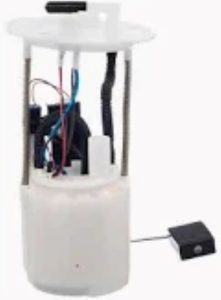Fuel pumps are pretty good about lasting a long time, usually somewhere between 100,000 and 150,000 miles depending on the vehicle and driving conditions. Sometimes even more miles, for example in good vehicles with high-quality fuel pumps. Yet, fuel quality, driving style, and maintenance intervals all help decide a Fuel Pump's genuine life.
Running your gas tank too low too frequently, which allows the pump to overheat. Fuel is a coolant, so any tank that stays below 1/4 increases the possibility of pump overheating and wear reducing life expectancy. A fuel pump studies have shown that, running at low-fuel conditions can damage them almost 20-30% before compared to these being steady kept of the same level fuel.

Another important factor is quality of the fuel. The pump itself works harder when clogged, and fuel from contaminated or low-quality sources can cause debris to flow through the system as well. The lubrication of the heat exchanger coolant is contaminated when leaks occur giving rise to premature pump motor wear, lower percentage life and eventual failure as early 60 K miles in severe cases. Changing the fuel filter regularly is one of the few recommended ways to keep a pump alive by inhibiting debris from getting to it.
Your driving habits also play a role in how long the pump lasts. In the summer, moisture can easily get into a fuel system when tanks "sweat" heavily on hot days and older steel tanks are prone to rust. The motor and electrical components of a 12-volt pump are worn by this continuous usage, unnecessarily. Performing preventive maintenance to maintain your pump fit and working requires some few works on, e.g. cleaning the tank as well as filter, which will then elongate the lifespan of your pump.
As Henry Ford put it, “Coming together is a beginning; keeping together is progress; working together is success.” This reliable replacement that offers a long-lasting and efficient operation can help take good care of the vehicle, ensuring the overall improvement for quite sometime, as well as prevent its future occurrence.